![Liftoff of Space Shuttle STS-130, perhaps the final nighttime liftoff in the shuttle program's history. [Courtesy: NASA]](https://betanews.com/wp-content/uploads/media/45/4506.jpg)
GAO: More security training leads to less compliance, including Los Alamos, NASA
A US Government Accounting Office report released yesterday (PDF available here) reveals an astonishing and counter-intuitive trend: Government agencies' compliance with directives intended to improve information security has declined in inverse proportion to the amount of training they receive.
In a report to the House Government Management Subcommittee yesterday, the GAO cited increased awareness of the provisions of the Federal Information Security Management Act (FISMA), due to increased awareness training among the 24 federal agencies tested: 91% of employees in those agencies received testing in fiscal 2009, up 3% from the previous year. But specifically in light of increased exposure to the Gumblar Trojan and the Conficker worm, at least 17 of those agencies were reported to have enacted deficient responses to these increasing threats, including essentially assigning the entire job of security to just one person -- against FISMA's mandate.

Swype and T9 Trace are on a collision course
You may not know the name Nuance Communications, but you can bet you've used this company's products. It deals with linguistic solutions in the health care, enterprise, and the consumer mobile spaces. If you were to know the company for anything, though, you'd probably know Nuance as the company that owns T9 text completion, which ships on 85% of all mobile phones.
You may also not know the name Cliff Kushler, but he was one of the inventors of T9 at Tegic Communications. He went on from there to launch the company Swype after Nuance acquired Tegic in 2007.
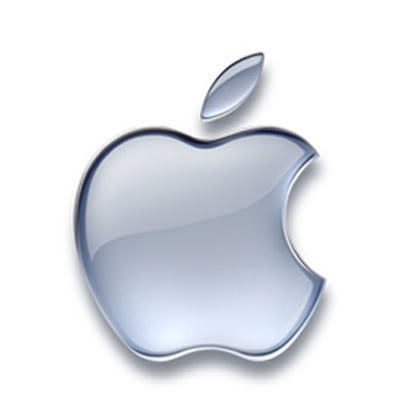
Enough with the Apple bashing!
As the hype machine for iPad availability revs up into overdrive (and, in some cases, tacks on afterburners), in a desperate effort to restore balance to the universe -- or, in some people's lives, what passes for a universe -- backlash against Apple increases to compensate. I'm thinking it's getting more than a little ridiculous to demonize a company because it's managed to succeed where others have failed.
I'm thinking it's time to stop the silliness.

Has SSL become pointless? Researchers suspect state-sponsored CA forgery
The most powerful deterrent against the use of man-in-the-middle attacks against SSL/TLS-encrypted connections may be how much easier it may be to simply attack from the endpoint. Certainly "man-in-the-middle" sounds more sophisticated, and as a pair of well-known academic researchers are preparing to report, the phrase has actually become a "starburst" marketing point for the sale of digital surveillance equipment to government agencies.
But perhaps the most serious defect in the SSL system, allege Indiana University graduate student Christopher Soghoian and Mozilla security contributor Sid Stamm, lies in the ability of government agencies (or individuals acting in the name of government agencies) to acquire false intermediate certificates for SSL encrypted trust connections. Those certificates could enable them to, in turn, sign and authenticate Web site SSL certificates that purport to be legitimate collectors of personal information, such as banks.

That phone you're about to throw away could be worth $500
The lifespan of mobile phones is getting very short, and CTIA is packed with evidence to prove it. When I met with HTC at CES in January, they had an array of eight handsets to show off, most of which had only been released into the market within the last six months.
Now, just two months later, HTC has added four new high-end smartphones that put the entire batch that I saw in January to shame. Smartphones only remain on the cutting edge for a matter of weeks before they're usurped by the latest hot device. In the case of Android, sometimes it's only a matter of days.

Verizon: Current telecom law is 'irrelevant' to the modern Internet
"Thanks to the efforts of the Federal Communications Commission, we now have a National Broadband Plan, which lays out a vision for a vibrant broadband and Internet marketplace," began Verizon Executive Vice President for Public Affairs Tom Tauke, in a speech to the Washington think tank New Democrat Network yesterday. But that's where the perfunctory appreciation stopped: "In my view, the current statute is badly out of date. Now is the time to focus on updating the law affecting the Internet. To fulfill broadband's potential it's time for Congress to take a fresh look at our nation's communications policy framework."
It was an important speech not only for who was speaking, but where it was spoken: NDN is perhaps the furthest thing from a libertarian free-enterprise institute. It's a group of active Democrats who are celebrating the passage of step one of health care reform, and who believe that federal policy reform can reset and reinvigorate the public agenda, on issues including broadband buildout and human rights. Verizon cozying up to NDN would be like allying itself with Google...but then again, it has allied itself with Google.
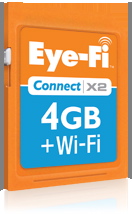
Review: Eye-Fi X2, my CTIA secret weapon
Two years ago, Lexar brought the Eye-Fi brand into the mainstream when it released 2GB SD cards endowed with Eye-Fi's 802.11b/g wireless connectivity. The capability turned any camera with an SD slot into one with Wi-FI. Since that time, Eye-Fi has grown its product line to include support for 802.11n, improved security features, improved capacities, and overall performance improvements.
On Tuesday, Eye-Fi's new X2 series of wireless SD cards hit retail, bringing the 4GB Connect X2 ($49.99), 8GB Explore X2 ($99.99) and 8GB Pro X2 ($149.99) to photographers across the country.
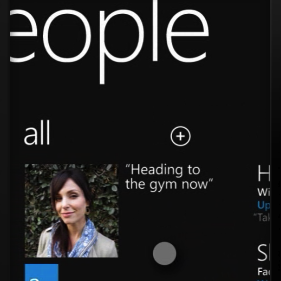
Windows Phone 7 Series imitates Apple's iPhone in the worst ways
For years, people have accused Microsoft of being an imitator, rather than innovator. Finally there is evidence: The ways Windows Phone 7 Series imitates the very worst of Apple's iPhone. Unless there is the strangest of coincidences -- like two students having the same wrong answers on a high school history test -- Microsoft is imitating Apple, using the same strategy to make the same mistakes. It's either imitation or incompetence, and out of fairness I assume the former.
The first imitation is the most baffling: Limited multitasking. Like iPhone, Windows Phone 7 Series will allow multitasking for some of its own applications, but not others. When open but not in use, third-party apps go into a pseudo-off ("dehydrated") state. By comparison, Google's Android, Nokia's Maemo or Symbian OS and Palm's WebOS all multitask (e.g., run background applications) just fine.

How I slashed my connection to cable TV without missing anything
Mission: Find an affordable alternative to cable/pay TV using only off-the-shelf products.
Deadline: Today (with a clause for extension)

Exclusive: Olympic snowboarder Shaun White discusses his first skateboarding game
Of all the things we expected to come from a conference about wireless technology, an interview with a two-time gold medal olympian was not one of them, but today, Betanews got an exclusive interview with professional snowboarder/skateboarder Shaun White about his first skateboarding-only videogame from Ubisoft.
Truth be told, running into Shaun was purely accidental. I was scheduled to talk to Marvell about its Armada 600 platform at the very same time the he was scheduled to do an autograph signing for the company. As a huge line amassed around Marvell's booth, I completely expected to have my discussion time bumped. Instead, Marvell invited me to ask Shaun a few questions.
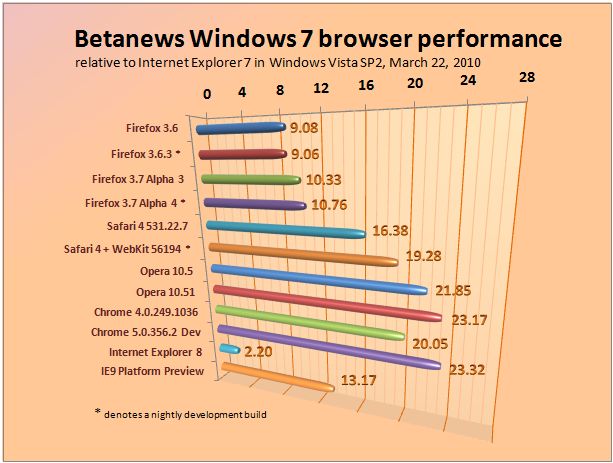
Betanews Relative Performance Index for browsers 3.0: How it works and why
The Betanews test suite for Windows-based Web browsers is a set of tools for measuring the performance, compliance, and scalability of the processing component of browsers, particularly their JavaScript engines and CSS renderers. Our suite does not test the act of loading pages over the Internet, or anything else that is directly dependent on the speed of the network.
But what is it measuring, really? The suite is measuring the browser's capability to perform instructions and produce results. In the early days of microcomputing, computers (before we called them PCs) came with interpreters that processed instructions and produced results. Today, browsers are the virtual equivalent of Apple IIs and TRS-80s -- they process instructions, and produce results. Many folks think they're just using browsers to view blog pages and check the scores. And then I catch them watching Hulu or playing a game on Facebook or doing something silly on Miniclip, and surprise, they're not just reading the paper online anymore. More and more, a browser is a virtual computer.
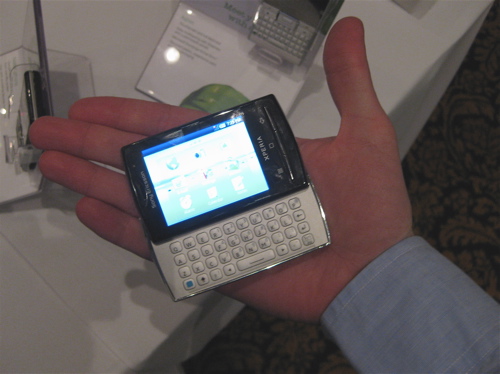
Why Sony Ericsson is worth watching in the Android space
In the past, having too many different screen resolutions to support was a problem for Windows Mobile developers. For the users of Android phones, it seems like too few screen sizes could become a problem. With Android, there are only three general screen classes: small, medium, and large.
And the trend lately among Android devices has been to have bigger and brighter screens. When the Motorola Droid debuted last October, the device's 3.7" screen looked downright huge. Yesterday, the 4" screen on the Samsung Galaxy S and 4.3" screen on the HTC EVO made the Droid look small by comparison. Unfortunately, the shape of the chassis must reflect the size of the screen. What's happening is that we are seeing bigger, flatter phones.

Google's Hong Kong move leads to censorship, followed closely by opportunism
What, exactly, would one be blocked from seeing now that the "Great Firewall of China," as it's been dubbed, separates citizens of mainland China from Google? This morning, Betanews used a fabulous Firefox 3.0 add-in tool called ChinaChannel, created by independent developers in Hong Kong, to set up a proxy connection using a China IP address, so we could peruse Google as though we were in China itself. Then using an ordinary copy of Opera 10.51 on the other side, we browsed Google.com.hk -- the server to which Google is now redirecting Google.cn requests -- using our regular US-based connection.
We've used this tool in the past, and we had an easier time obtaining a proxy connection with a China-based proxy. At first this morning, we found proxy servers were frequently denying connection requests, although repeated requests often got through after 10 or more tries. However, sometimes our connection only lasted as long as a minute.

Get in on the limited beta of new suggestion engine, Zite
Late last year, I took a look at how search services were being affected by the unchecked growth of ultra-digested, 140-character-or-less news blips. In my research, I talked to a Vancouver-based startup called Worio that was tackling the difficult problem of creating a search engine that "understood" what kind of data was important to the user.
Now, the team is working on creating a new content discovery service, which it is calling Zite.
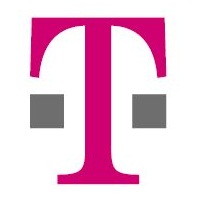
T-Mobile talks network upgrades
Rather than debut anything unknown or surprising, mobile network operator T-Mobile today presented everything it had already announced, and then concentrated on talking about the widespread 3G network upgrade it's rolling out this year.
While this doesn't always get people drooling, T-Mobile looks to be taking a level-headed approach to network growth which the company says will result in the overall fastest 3G network in the US.



